
views
Washington: It was not a country that would naturally have seemed high on the priority list of a president who came to office relishing a trade clash with China, promising to reorder the Middle East and haranguing European allies to spend more on NATO.
But for President Donald Trump, Ukraine has been an obsession since the 2016 campaign.
Long before the July 25 call with the new Ukrainian president that helped spur the formal start of impeachment proceedings against him in the House, Trump fretted and fulminated about the former Soviet state, angry over what he sees as Ukraine’s role in the origins of the investigations into Russian influence on his 2016 campaign.
His fixation was only intensified by his hope that he could employ the Ukrainian government to undermine his most prominent potential Democratic rival in 2020, former Vice President Joe Biden.
His personal lawyer, Rudy Giuliani, has undertaken a nearly yearlong, free-ranging effort to unearth information helpful to Trump and harmful to Biden.
And Trump has put the powers of his office behind his agenda: He has dispatched Vice President Mike Pence and top administration officials with thinly veiled messages about heeding his demands about confronting corruption, which Ukrainian and former American officials say is understood as code for the Bidens and Ukrainians who released damaging information about the Trump campaign in 2016. This summer he froze a package of military assistance to Ukraine even as the country, eager to build closer relations with Washington, continued to be menaced by its aggressive neighbor Russia.
When Ukraine elected its new leader, Volodymyr Zelenskiy, on April 21, Trump seized on the moment as an opportunity to press his case. Within hours of Zelenskiy’s victory, Trump placed a congratulatory call as he was en route from his Mar-a-Lago resort in Florida to Washington.
He urged Zelenskiy to coordinate with Giuliani and to pursue investigations of “corruption,” according to people familiar with the call, the details of which have not previously been reported. On Wednesday night, a spokesman for Trump declined to respond to questions about the call and whether Trump mentioned Giuliani. Officials at the National Security Council declined to comment.
In a phone interview Wednesday night, Giuliani dismissed the idea that Trump was “obsessed with Ukraine.”
“He mentions it rarely in comparison to other things,” he added. Giuliani said he was unaware that his name had been part of the April call.
Four days after that call, Trump said on Sean Hannity’s Fox News program that he “would imagine” that Attorney General William Barr would like to review information about Ukraine’s actions in the 2016 election.
On Wednesday, the Justice Department said that the official named to review the origins of the counterintelligence investigation into Trump’s campaign, John H. Durham, is looking into the role of Ukraine, among other countries. “While the attorney general has yet to contact Ukraine in connection with this investigation, certain Ukrainians who are not members of the government have volunteered information to Mr. Durham, which he is evaluating,” the Justice Department said in a statement.
When the US delegation dispatched to Zelenskiy’s inauguration — including Energy Secretary Rick Perry — reported back favorably in May about the new leader, Trump was dismissive. “They’re terrible people,” he said of Ukrainian politicians, according to people familiar with the meeting. “They’re all corrupt, and they tried to take me down.”
Trump’s suspicions played out in public Wednesday, both in the reconstructed transcript of the July 25 call and in a meeting at the United Nations with Zelenskiy. Asked at his appearance with Zelenskiy if he believed that Hillary Clinton’s deleted emails are on a server spirited into Ukraine — an element of an unsubstantiated conspiracy theory circulating on the far right — Trump replied, “Yeah, I think they could very well — boy, that was a nice question.”
Trump’s focus on Ukraine started after a law enforcement organization, the National Anticorruption Bureau of Ukraine, released damaging information about cash payments earmarked to his campaign chairman, Paul Manafort, by the Russia-aligned political party of Ukraine’s ousted former president.
Even after Manafort stepped down from the Trump campaign under pressure, he insisted to Trump’s aides that Clinton’s campaign was behind the surfacing of the documents revealing the payments and questioned the authenticity of the documents.
Manafort remained in contact with Trump’s aides through the election. And during the presidential transition, Manafort told people that he was discussing possible investigations with the president-elect’s team into whether Ukrainians tried to undermine the Trump campaign through the release of damaging information about Manafort.
Trump was briefed on the subject and would consider pursuing investigations “if the Democrats keep pushing” investigations into Russian meddling on Trump’s behalf, Manafort told people in the days before the inauguration.
Manafort told the people that the Ukrainians who released the damaging information about him were working with the Clinton campaign to mount a “politically motivated attack on me.”
The issue continued to fester with Trump. He tweeted six months after his inauguration about “Ukrainian efforts to sabotage Trump campaign” and to “boost Clinton,” and asked, “where is the investigation?”
After special counsel Robert Mueller began his investigation of Russian interference in the campaign and possible obstruction of justice by the president, Giuliani stepped in to grant Trump’s wish for an investigation with a different focus, albeit one lacking government authority and operating outside normal foreign policy channels.
With Trump’s blessing, Giuliani has worked for months with current and former Ukrainian prosecutors to seek information and push for investigations into matters that he admitted would be of political benefit to Trump.
One involves the overlap between Biden’s diplomacy in Ukraine as vice president and his son Hunter’s position on the board of a Ukrainian energy company owned by an oligarch who had been accused of corruption.
A second involves the claim that Ukrainian officials sought to damage Manafort and Trump’s campaign in 2016. Mixed in with the issues related to Manafort is the unsubstantiated theory that the hack of Democratic National Committee emails in 2016 could have been carried out by Ukrainians who in turn pinned the blame on Russia — something that Trump brought up in general terms with Zelenskiy on the July 25 call.
Throughout Giuliani’s efforts he would brief Trump, keeping the president abreast of his work. But Giuliani also decided he would talk publicly about what he found.
“I decided because I couldn’t get law enforcement agencies interested in doing their job, I would just put it out publicly and I would see if anyone was interested in it,” Giuliani said in an interview Wednesday.
Giuliani’s work set the stage for the April call, Trump’s first contact with Zelenskiy, a former comedian and political neophyte. Zelenskiy is seen by the West as a reformer elected with a mandate to take a hard line against both Russian aggression and the political corruption that has long plagued his country.
The White House released a summary — but not a full transcript — of the April call, noting that Trump pledged to work with the new administration “to implement reforms that strengthen democracy, increase prosperity and root out corruption.”
Giuliani planned to travel to Kyiv in May to try to meet with Zelenskiy to urge him to pursue the corruption investigations of interest to Trump, telling The Times, which revealed his efforts and the planned trip, that he had the full support of Trump.
Ukrainian officials blocked his efforts to arrange a meeting with Zelenskiy, and Giuliani canceled the trip at the last minute amid a backlash.
Instead, Giuliani said he conveyed his information to an aide to Zelenskiy in a late July phone call, followed by an Aug. 1 meeting in Madrid, which was revealed by The Times. The meeting was arranged with the knowledge and cooperation of the State Department, and Giuliani said he briefed the department afterward.
As Giuliani was pressing for discussions with Ukrainian officials, the American ambassador to Ukraine was recalled in May, two months before her term was to expire, amid growing attacks from conservatives in the United States who saw her as insufficiently supportive of Trump — an early public sign of U.S. foreign policy being intertwined with Trump’s political priorities.
And even though the Defense Department certified in a letter to Congress in May that Ukraine was making sufficient progress in fighting corruption to justify the release of $125 million in military assistance, Trump subsequently froze that aid and more — not releasing it until this month, under pressure from both Republican and Democratic lawmakers.
During the early weeks of the summer, Trump repeatedly expressed concern to aides about whether he should view Zelenskiy as friendly to his priorities.
The July 25 call demonstrates the degree to which Trump and Giuliani were tracking Ukrainian politics.
In the weeks leading up to the call, Zelenskiy had taken steps toward removing Yuriy Lutsenko, the country’s top prosecutor, with whom Giuliani had been working to gather information about, and push investigations into, the Bidens and the Manafort documents.
Two days before the call, Zelenskiy had floated the name of a successor to Lutsenko. Giuliani saw the move to replace Lutsenko as a threat to the investigations for which he was pushing, and the account of the July 25 call released by the White House suggests that Trump concurred.
“I heard you had a prosecutor who was very good, and he was shut down, and that’s really unfair,” Trump told Zelenskiy, in what people familiar with the conversation said was a reference to Lutsenko.
“A lot of people are talking about that, the way they shut your very good prosecutor down,” Trump said, later adding that Lutsenko “was treated very badly and he was a very fair prosecutor.”
In fact, Lutsenko was widely criticized in Ukraine as corrupt. And his office’s efforts to restart an investigation into the oligarch who owned the company that paid Hunter Biden were seen among some Ukrainian officials as an effort to curry favor with Trump.
Kenneth P. Vogel, Julian E. Barnes, Maggie Haberman and Sharon LaFraniere c.2019 The New York Times Company










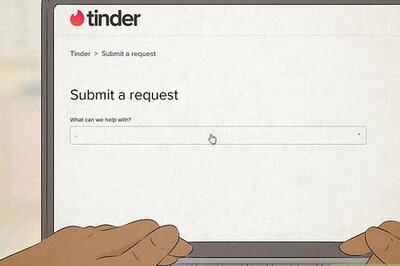



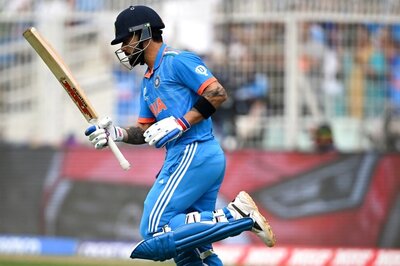
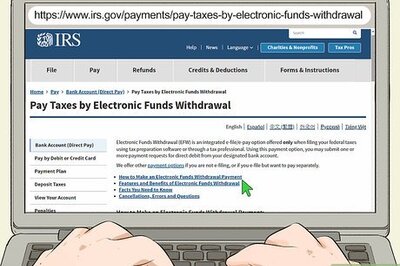


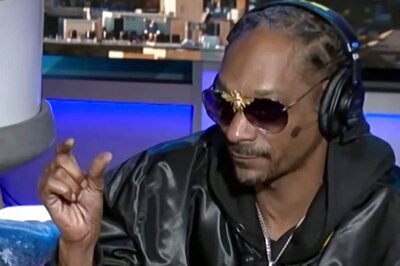
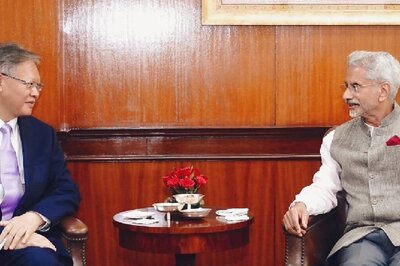
Comments
0 comment